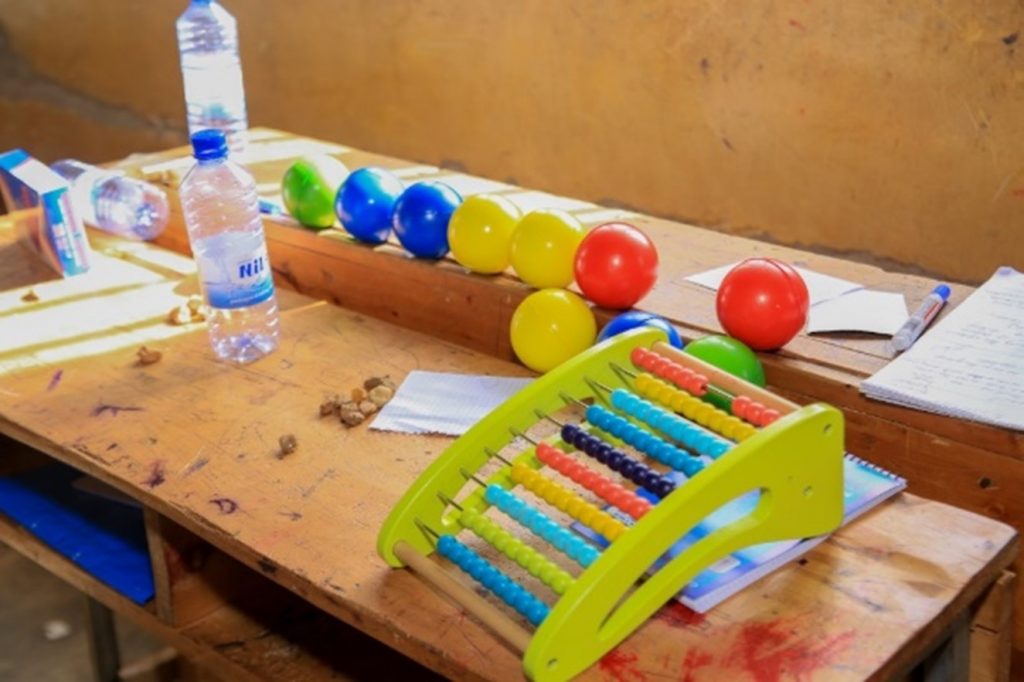Following the training of 832 Sector-Based Mentor Trainers (SBMTs), from all the 30 districts, on how to use play-based teaching and learning approaches, Inspire Educate and Empower Rwanda (IEE) in partnership with UNICEF has also concluded training of 2068 School-Based Mentors (SBMs) country wide. This was the first-time training for School-Based Mentors (SBMs) across the country to help deliver commitments to integrate Learning through Play (LtP) in the primary in-service teacher training programme, as embedded in the using playful pedagogy to support pre-and in-service teacher development for quality results for children programme.
The SBMs trained are expected to support fellow teachers in their schools on a regular basis through school Continuous Professional Development (CPDs). This will allow all teachers across the country to understand the importance of play in child development and integrate playful pedagogies in a competence-Based Curriculum, for teaching and learning.
The LEGO Foundation, UNICEF, the Ministry of Education through the Rwanda Basic Education Board and IEE are collaborating to support the integration of Learning through Play as a pedagogical approach, in support of implementing the primary school competence-based curriculum in Rwanda. Like the previous training for all the 832 SBMTs, all the 2068 School Based Mentors (SBMs) were supported to understand philosophical and educational psychological bases for LtP, place for LtP in the primary school competence-based curriculum, space for play in the classroom, practical strategies for embedding play in lesson planning and delivery and broadening the understanding of play materials to support learning, using no-cost materials.
SBMs also acquired skills on how to practically use the no-cost materials to facilitate learning for primary school children, using content from the primary school competence-based curriculum, playing with objects, games, with practical relevance to learning and delivered joyfully, actively engagingly, socially interactively, meaningfully, and iteratively, with considerations of gender and different abilities. Training for the SBMs has been conducted in 416 sectors and facilitated by Sector -Based Mentor Trainers. The 2,068 SBMs will be further supported to facilitate trainings for teachers at over 2900 public and Government-aided schools in the framework of Continuous Professional Development (CPD) time which has been included in the school timetable to support school-based peer. The Learning through Play programme is therefore aimed at developing skills of Sector and School-based Mentors to understand how to use play as a pedagogical approach to facilitate children’s learning, for effective achievement of learning outcomes.

Ignace Turabumukiza, a School-Based Mentor at Groupe Scolaire Mwendo in Ruhango district, considers Learning through Play as suitable for teaching children. He said, “Playful learning makes children like what is being taught, since children like games, it makes learning enjoyable as they communicate with each other. It also encourages competition and fast thinking when games include problem solving. As a mentor, my task is to make this teaching methodology appealing to most schools and participating in training teachers”.Play materials enable children to explore the world around them. Through creating their own environments and pretend play, they learn about the world, engage in problem solving activities, practice their social skills and improve their self-confidence.

The Nova Scotia learning through play viewing guide states that play builds literacy experiences in young learners through functional play; ‘Children create, become, and enter imaginary worlds as they choose to find ways to explore varying episodes that mimic real life. Functional play is sometimes known as ‘practice play.’

Research also shows that small children seem to be instinctively attracted to all the things the planet is made of, because these materials offer rich learning opportunities and pleasure which provides the motivation for their play. Children have lots of different ideas so having objects that allow them to express those ideas is important.
Through embedding play-based learning in the Rwandan public education system, The LEGO Foundation and UNICEF will have complemented Government efforts in revolutionizing teaching and learning, which are well on the way, with a revised competence-based curriculum and an institutionalized in-service teacher training programme; The national School-based Mentorship Programme.
Reactions to this content may be addressed to: ieerwanda.directorate.org@gmail.com
